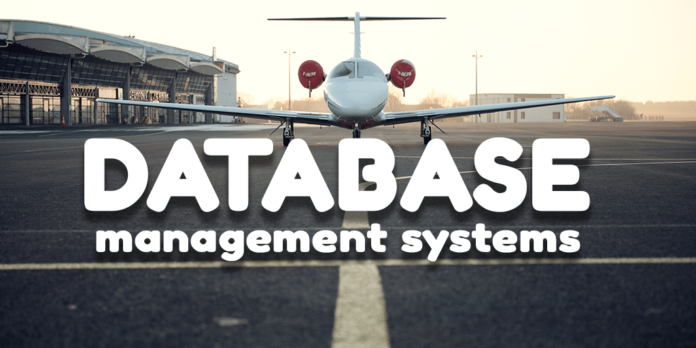Let’s talk about database management systems – its definitions and benefits. One of the easiest ways of defining a Database management system also often addressed as DBMS is to denote it as a software system that provides the users of the database access to maintain, create, control as well as define the data which that database holds.
So, when you write a program it accesses the DBMS which in turn performs the needful on the data. Hence it acts as an intermediate layer.
[bctt tweet=”DBMS is a software system that provides the users of the database an access to maintain, create, control as well as define the data which that database holds.” username=”RebellionRider”]
DBMS could either be manual or computerized. However the age of manual management systems is an era gone by. Now even the tiniest of databases need to be created, organized and manipulated using software systems. In any case, DBMS is important because they provide the rules and regulations necessary for the maintenance & optimum usage of the database.
In other words, a database management system helps in accessing, updating or deleting the data stored in a database. This is in order to maintain its utility & integrity at all times.
DBMS – A Monumental Part Of Information Technology Industry!
The significance of Database management systems could be seen in the fact that every serious business application needs it in one form or the other. Today you can find DBMS of different scales from the ones running on a single PC to those running on huge mainframes. So more or less you can say that Database management systems are a digitized version of the more traditional manual record-keeping systems.
As we discussed in the earlier blog that database is the relevant & useful information that we are storing for future use whereas DBMS is the software tool that is used to manage a database. This is the basic difference between a database and a DBMS. Queries and Transactions are the standard modes for using data and both of them use DBMS for processing.
Some of the most relatable DBMS examples are ATMs, Banks, Airline Reservation Systems, e-Commerce websites etc.
5 Key Features Of Database Management Systems!
There are certain important features that define a database management system.
- Generally speaking, they are huge systems with a composite structure. For example Sybase, Microsoft SQL Server, MySQL or Oracle etc.
- Database management systems are multiple-user oriented and contain shared data.
- DBMS are usually vast when initially designed at their inception.
- These systems provide higher security of the database to the user(s).
- The backup and recovery feature of a high-end Database management system is both complex as well as advanced. This ultimately provides better database management & security.
Advantages Of Database Management System!
One of the truly unique and highly productive advantages of DBMS is the option of managing data centrally. The centrally stored data could then be accessed and used by multiple users. This centralized data storage system gives way to many other advantages of using a DBMS. Such as:
- Reducing data redundancy – This ensures a consistent database and efficient use of storage space.
- Implementation of data integrity
- Data sharing and security – DBMS limits the accessibility of the data to the authorized users only. This makes data sharing safer. Moreover shared data makes it possible to fulfill data requirements with minimal modifications.
- The process of development of an application by a programmer becomes much easier. This is because issues like data security, accessibility and integrity is automatically handled by DBMS.
- Centralized data ensures a more effective backup and recovery process than the conventional file processing systems.
- There are options like form-style and menu-driven interfaces provided to the user.
Some other advantages of DBMS include:
- Program & Data independence: This means that the programs and the data are not mutually dependent. Hence if a programmer wants to change the structure of the database then he can do so without affecting the application programs that are using the database.
- Data Abstraction: This feature of the DBMS is an advantage to the client since it ensures that the users get an abstract view of the data. Meanwhile withholding the details about the implementation and the physical storage of the data.
- Aiding multiple views of the data: Database management system enables different users to have a view of the data from their own perspective.
Some Disadvantages Of A Database Management System!
DBMS implementation may have many perks. However there are certain cost factors and other risks involved which a client should keep in mind at all times. These are:
- Database management systems are a costly affair. Huge investments in hardware and software are required when undertaking such a project on a large scale or even on a smaller one. Also, the organization can incur cost in training and hiring new personnel with specialized skills of operating and maintaining such systems.
- Scenarios like system failure without proper salvage methods may result in permanent damage to the database. Moreover, if the system containing the database fails then precious company time is lost till the system is up and working again.
- The complex backup and recovery procedures make it a cumbersome process.
Database Management System Is The Need Of The Hour!
DBMS has become one of the most sought after tools in the information technology sector. The speed with which a vast amount of useful data is being generated is unfathomable. And with the same enthusiasm newer versions of Database management systems are being developed. Hence having a preliminary knowledge about DBMS has become absolutely important.
Hope you enjoyed reading. Do make sure to follow us on Twitter & Facebook for more such interesting database concepts. Thanks & have a great day!












